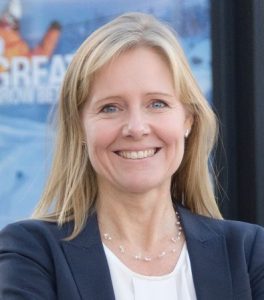Participants: LTU Divison of Product Innovation and GKN Aerospace Engine Systems
This project ended on March 17, 2020, when Christo Dordlofva graduated with a doctorate, after four years of collaboration. Below you can find the abstract of his thesis “Qualification aspects in design for additive manufaturing” which can be downloaded here.
Abstract
The aim of this research is to further the understanding of implications for product development and qualification when introducing additive manufacturing (AM) in the context of the space industry. Increased availability of AM machines and alluring potentials such as design freedom and cost-efficient product development and manufacturing has led to a rapid growth in the use of AM. However, the implementation of AM is hampered by lack of process understanding, implying uncertainties for engineers on how to design products for AM. Furthermore, the AM process chain (including e.g. post-processes) is not sufficiently developed and understood, adding further uncertainties. These uncertainties are a challenge when developing products for space applications, especially if they are critical for mission success and hence not allowed to fail. Such products and their manufacturing processes have to comply with strict requirements on verifying performance, quality, and reliability, i.e. product and process qualification. The purpose of this research is to investigate how qualification is addressed during product development in the space industry in order to find improved ways for engineers to explore the capabilities of AM to better understand its possibilities and limitations.
The research is specifically focused on the use of powder bed fusion processes by companies developing and manufacturing sub-system components for space applications. It is limited to the manufacturing of components on Earth for use in space. The research approach is qualitative. Five studies provide the empirical foundation for the thesis, in which a total of four companies are included. In particular, one of the companies is studied in-depth, including a development project for a critical AM product. Individual interviews, workshops and focus groups are used for data collection. Furthermore, the in-depth study is based on a longitudinal presence at the company, providing the opportunity to gather data from project meetings and discussions. Collaborative action research with three of the companies provides a research setting to study the development of three AM products (of which the in-depth study is one) and how uncertainties related to the AM process can be addressed.
Four aspects of how to address product qualification in Design for AM are deduced: (i) AM knowledge should be built through application-driven development processes, (ii) qualification should be accounted for early and to a larger extent, (iii) suitable and acceptable requirements should be defined through collaboration, and (iv) rapid manufacturing should be utilised to evaluate critical uncertainties. To support engineering teams on how to address these aspects, this thesis presents two contributions to the design field. The first is a design process utilising AM Design Artefacts (AMDAs) to identify, test and evaluate the AM-related uncertainties that are most pressing for a product. Through the iterative use of AMDAs, products designs are successively evolved, enabling a design which meets process capabilities and fulfils product requirements. The AMDA design process is part of the second contribution, a Design for Qualification framework that encourages a qualification-driven development approach for AM products. The framework includes six design tactics that provide guidance for its implementation. The tactics encourage an application-driven development process where qualification is considered early, and where successive steps are taken towards a thorough AM process chain understanding. The framework is designed based on the studied cases, and future research should focus on developing the framework and tactics further to facilitate implementation and wider applicability.
Contacts

[email protected]
Supervisor Prof. Anna Öhrwall Rönnbäck
[email protected]
